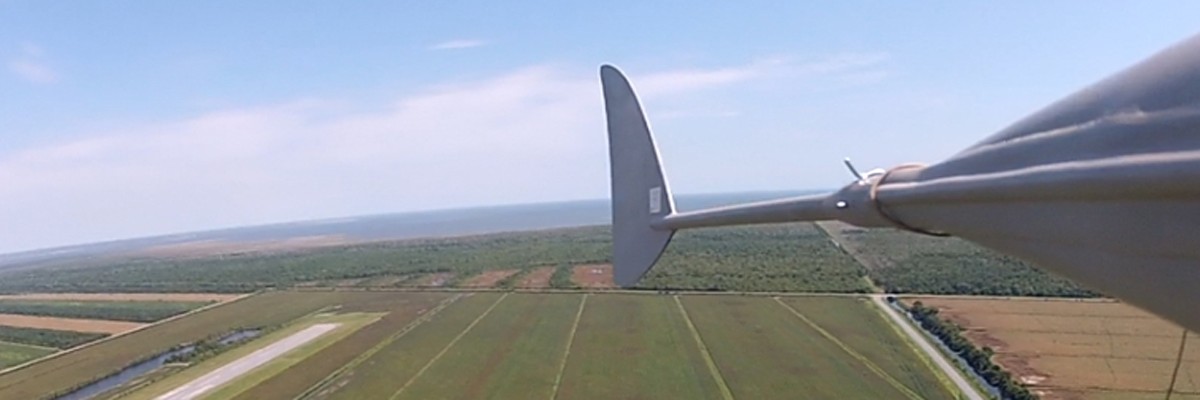Aviation
Aviation has been and continues to be an essential component of North Carolina’s economy, culture, and history. The Aviation Focus Area at ITRE was established in 2012 to support the rising demands of research, training, and services in the modern aviation community. As the FAA’s NextGen Program approaches critical milestone dates, UAS integration will continue to expand at faster and faster rates. As the state of North Carolina transitions to a future aerospace environment, ITRE is prepared to collaborate with industry, researchers, regulators, and government agencies. The ITRE Aviation Team consists of a balanced group of experienced aviation professionals with a proven technology development track record that includes years of applied research and testing, both crewed and uncrewed flight operations, and aerospace business development knowledge.
ITRE is proud to represent NC State University as a core member of the ASSURE alliance which is the team of universities selected as the FAA’s UAS Center of Excellence in May of 2015. NC State is the lead university for Command and Control (C2) research activities on ASSURE. For more information, visit www.assureuas.org .
The ITRE Aviation team works with many NC State colleges and departments including Mechanical and Aerospace Engineering, Electrical Computer Engineering, Industrial and Systems Engineering, College of Agriculture and Life Sciences, and the College of Natural Resources. This ability to reach across campus and across the rest of the UNC System to access the best resource for a particular project allows ITRE to meet the multi-disciplinary needs of the modern aviation community that uses the air transportation system in new ways every day.
AUVSI Trusted Operator Program™ (TOP)
NC State has been certified as an AUVSI Trusted Operator Program™ (TOP) Provider, becoming just the fourth institution of higher education approved to deliver drone operator training at all levels of the AUVSI TOP certification.
AUVSI TOP is a certification program that creates a culture of safety, reliability, professionalism and trust among drone operators. Launched in 2018, TOP uses aviation regulations and safety standards developed by accredited standards bodies and international safety experts to certify a drone operator’s proficiency and ability to operate safely.
As a TOP certified organization, students that complete a drone operator training program at NC State automatically become TOP certified as well.
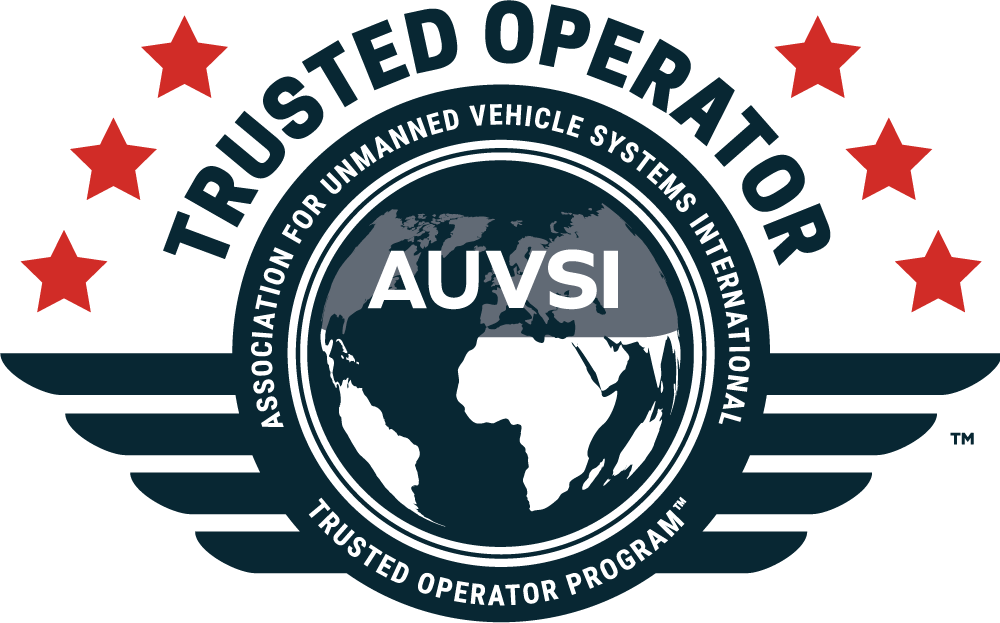
Uncrewed Aircraft Systems
Today, the UAS research and services activities at ITRE cover a wide range of capabilities and opportunities. With thousands of UAS flights and hundreds of hours of flight time, the Aviation Team is a nationally recognized leader in UAS integration into the National Airspace System.
The Aviation Team works with North Carolina Department of Transportation (NCDOT) Division of Aviation, the FAA, and industry partners to make UAS operations routine, safe, and accepted activities in our daily lives. The ITRE Aviation Team includes several nationally recognized UAS subject matter experts who are frequently invited as speakers, panelists, or contributors for discussions on emerging UAS trends and opportunities. The Aviation Team is always looking for new opportunities to utilize our resources or expand the research capabilities necessary to test new UAS technologies and airspace integration concepts.
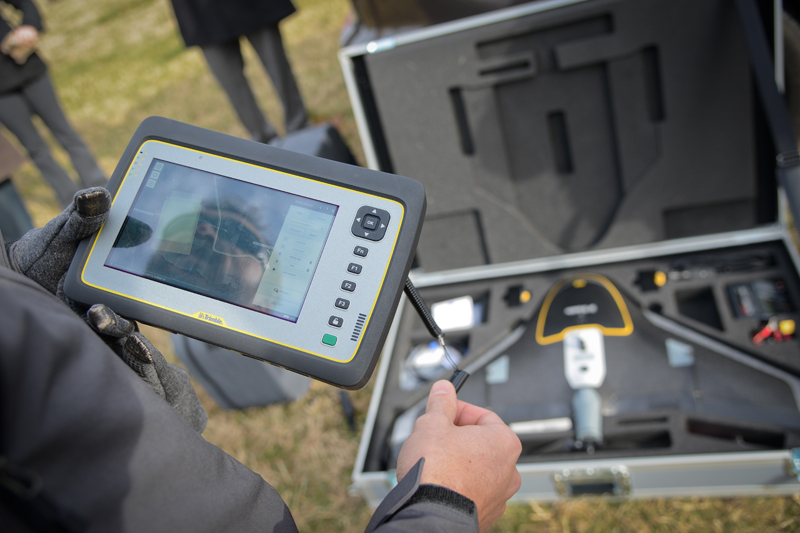
Drone demo at Lake Wheeler. Photo by Marc Hall
Research
- ITRE staff are an integral part of AERPAW. To ensure the nation’s leadership in fifth generation (5G) wireless networks, the National Science Foundation (NSF) and an industry consortium have invested $100 million to build specialized wireless networks for U.S. researchers to test new ways of increasing wireless speed and capacity. North Carolina’s Research Triangle region has been selected for a $24 million NSF grant over five years to host one of these wireless networks called Aerial Experimentation Research Platform for Advanced Wireless, or AERPAW. On today’s 4G networks, fixed nodes enable signals to connect to wireless devices. On the AERPAW platform, nodes will be mobile, with the ability to transmit and receive radio waves from user devices while moving on demand. For example, in the aftermath of a natural disaster such as a hurricane, existing cellular networks may be damaged. As a result, aerial base stations can position themselves to provide the best wireless coverage to victims and first responders who would otherwise have no cellular connectivity. The platform also has the potential to help pilots fly drones beyond line of sight, allowing for improved air traffic control under Federal Aviation Administration (FAA) regulations.
- ITRE is proud to represent NC State University as a core member of the ASSURE alliance which is the team of universities selected as the FAA’s UAS Center of Excellence. NC State is the lead university for Command and Control (C2) research activities on ASSURE. For more information, visit www.assureuas.org Opens in new window.
Engagement
- The Uncrewed Aircraft Systems (UAS) Working Group was established to support the rising demands of research, training, and services in the modern aviation community. The UAS Working Group plans to meet two or three times per year to engage the public sector, private sector, and academic institutions who are interested in UAS.
Flight Services and Access to Flight Locations
- ITRE Aviation can provide flight services and access to flight locations. Through the ITRE Aviation Service Center, the Aviation Team is able to offer a wide range of flight services to support partners in building and testing UAS capabilities. These services include consulting, site management of an operating area, flight operations for data capture, and data analysis.
- The ITRE Aviation team supports local and national organizations preparing for the economic, disruptive, and technology advancement opportunities that UAS are promising by offering access to university researchers and facilities, state natural resources to provide flight research locations, and programs specifically designed to accelerate the integration and adoption of UAS into the National Airspace System.
Technical Services
- Every UAS flight by the ITRE Aviation Team is a successful research flight. We understand that UAS in the NAS sometimes perform as expected or not as expected, but either way another research data set is created in the need to demonstrate the potential for UAS operating in domestic, civilian airspace. ITRE aviation conducts flight operations under Part 107 rules and has successfully obtained many Certificates of Operation (COAs) that have allowed NC State to operate large UAS (up to 300 lbs.) and at altitudes up to 3,000 AGL. These COAs have also allowed niche use-cases including agriculture spraying of pest and herbicides, as well as testing of drop deployed payloads.
Drone Operations Center
- To support ongoing AERPAW research and other UAS activities at NC State, ITRE established the Drone Operations Center (DOC) in 2024. This state-of-the-art mobile facility is primarily based at NC State’s Lake Wheeler Field Lab and can be relocated elsewhere as needed, providing vital operational flexibility.
- The DOC provides UAS researchers with a safe and comfortable working space, robust power and connectivity, and extensive system integration capabilities. The custom-designed trailer also features internal/external displays, mast-mounted multi-spectral cameras, and a rooftop platform for piloting and other needs.
- ITRE has established a FAA-Recognized Identification Area (FRIA) at the Lake Wheeler Field Lab. This allows ITRE and NC State to support researchers flying drones without Remote ID capabilities.
Technological Advances
The FAA’s program to modernize air transportation is called “NextGen”. Early NextGen technologies included Traffic Collision and Avoidance System (TCAS) and Automatic Dependent Surveillance – Broadcast (ADS-B). As of January 1, 2020, ADS-B out, the position reporting piece of the system, is required on all aircraft operating within the majority of controlled airspace in the US unless an exemption is granted. Specifically, around airport airspace classes B and C, and general class E airspace above 10,000ft MSL. UAS integration is a small piece of NextGen, but sharing airspace between crewed and uncrewed aircraft is now anticipated to be a routine activity. ITRE Aviation will continue to monitor NextGen including crewed, uncrewed and urban air mobility research, training, and services opportunities. We collaborate with industry and pursue funding that supports the advancement of technology, development of procedures, or testing of concepts for modern aviation.
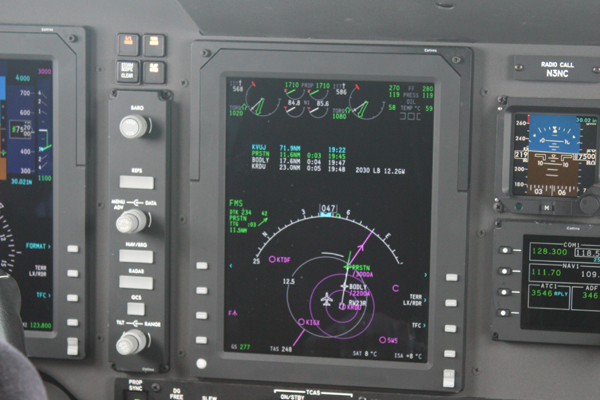
Economic Impact and Planning Studies
ITRE provides custom research and technical services through strategic planning, economic analysis, table top exercises, training programs, and other tools for supporting aviation decision making.
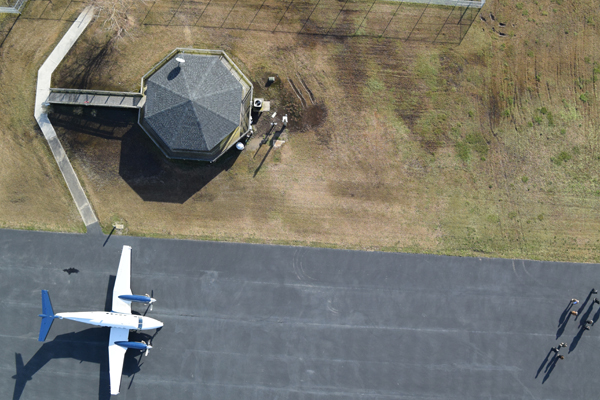
Airport Data Visualizations
ITRE provides animated visualizations that show an airport’s flight data over the course of a year. The visualizations are an effective way to present the reach of an airport and the connections it facilitates.
Contact Daniel Findley for more information or to request an airport data visualization.
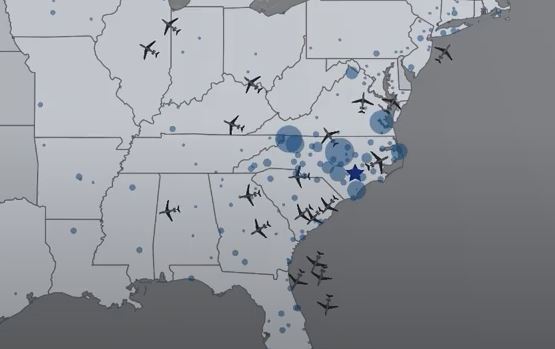
Training and Education
The North Carolina Airport Technical Assistance Program (NC AirTAP) at ITRE supports the state’s public- and private-sector airport professionals. Working in partnership with the NCDOT Division of Aviation and the NC Airports Association, the program helps North Carolina airports improve the safety, quality and efficiency of their operations. NC AirTAP provides training, information and networking opportunities for airport staff to exchange best practices and increase the use of new aviation materials and technology.
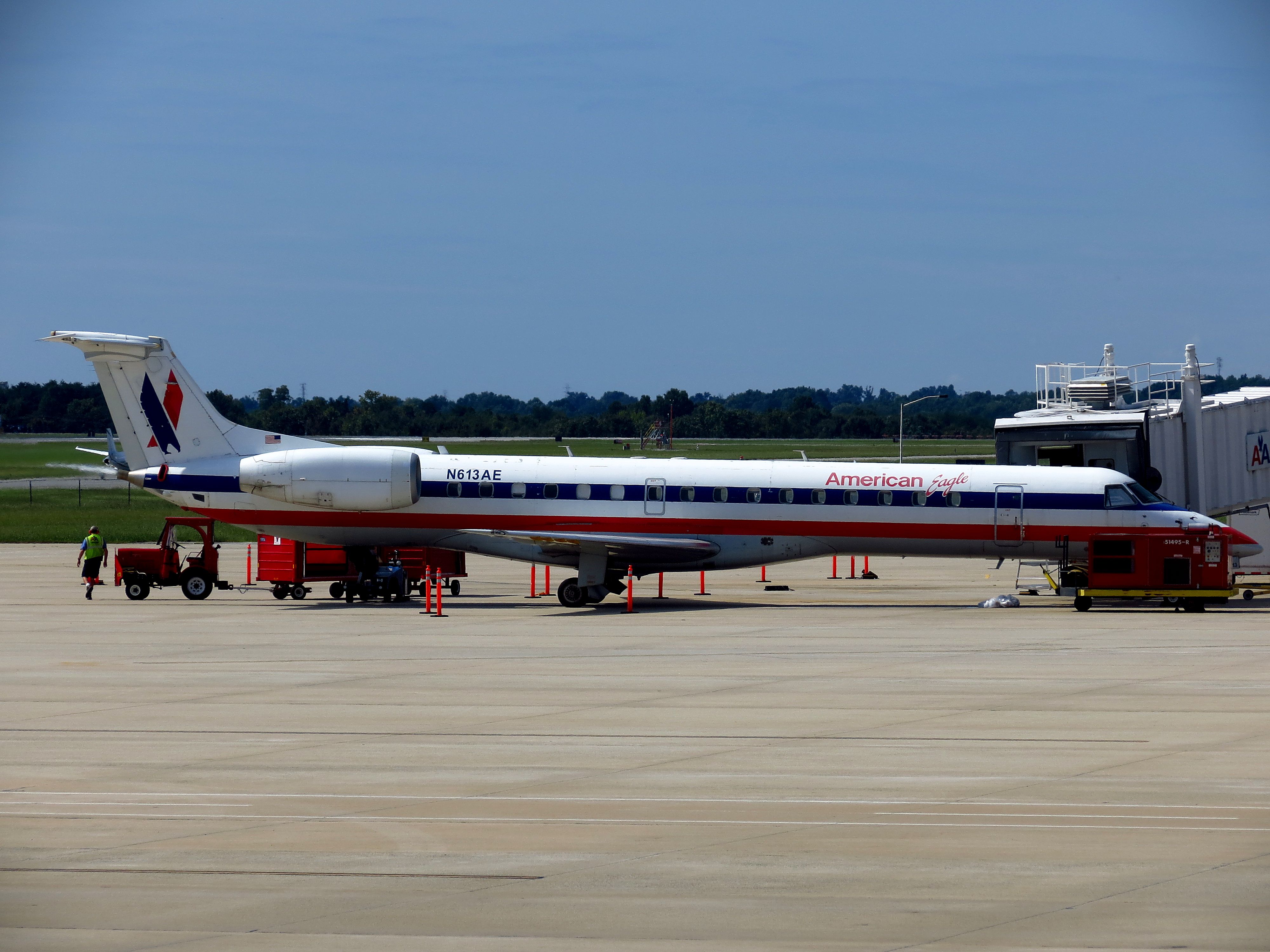
Photo [https://commons.wikimedia.org/wiki/File%3AN613AE_(8025013793).jpg] by redlegsfan21, CC BY-SA 2.0 [http://creativecommons.org/licenses/by-sa/2.0], via Wikimedia Commons
Contact
Evan Arnold
UAS Engineering Research Associate
NextGen Air Transportation Program
eparnold@ncsu.edu | 919-515-8523
Thomas Zajkowski
Flight Operations Manager
NextGen Air Transportation Program
tjzajkow@ncsu.edu | 919-515-8523
